VET APPROVED

The information is current and up-to-date in accordance with the latest veterinarian research.
Learn more »Click to Skip Ahead
As a cat owner, you must provide your feline friend with a well-balanced diet that meets their nutritional needs. While commercial cat food is an easy and convenient option, many owners prefer to supplement their pet’s diet with fresh food.
Eggs are popular food items that can be added to a cat’s meals. They are a good source of protein, vitamins, and minerals that can help keep your kitty healthy. Here, we cover how to cook eggs for felines, including the recipes, and what you should know before feeding eggs to a cat.

Before You Start
Before you start cooking eggs for your cat, there are a few things that you should keep in mind:
- Unpasteurized eggs should be served cooked, not raw. Raw eggs can contain bacteria that could make your cat sick, so it’s best to cook them before serving.
- Don’t add any seasoning or spices to the eggs. Cats have sensitive stomachs, and adding seasoning or spices could upset their digestive system or worse, be toxic.
- Be mindful of your cat’s overall diet. While eggs can be healthy additions to your cat’s diet, they should not be the sole source of nutrition. Make sure your cat is getting a balanced diet that includes all the essential nutrients that they need.
- Start with a small amount. If you’ve never fed your cat eggs before, start with a small amount to make sure they don’t have any adverse reactions.
Now let’s get into the actual recipes!
Disclaimer: These recipes have been approved by a veterinarian because they include only cat-friendly ingredients. However, they are not complete and balanced meals to feed your cat on a daily basis. They are great supplements to your cat’s diet and should only be fed on occasion and not as a regular staple. Please consult your veterinarian to help you decide what is the best diet for your cat.

Recipes for Cooked Eggs for Cats
There are several ways that you can cook eggs for your cat. Here are three simple recipes.
1. Scrambled Eggs
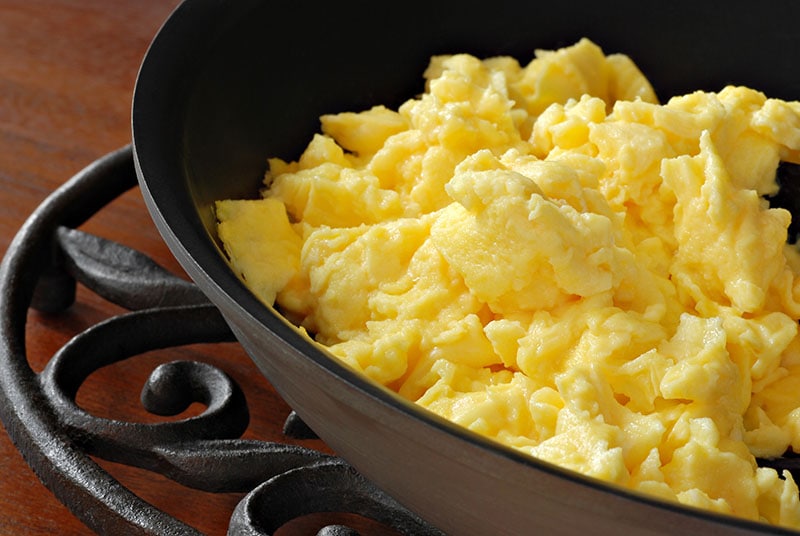
Ingredients:
- 1 egg
- Crack the egg into a small bowl, and whisk with a fork.
- Use a nonstick pan over low heat. Avoid using butter or oil in the pan.
- Pour the egg mixture into the pan, and stir gently until cooked through (about 3–5 minutes).
- Allow to cool before serving.
2. Boiled Eggs
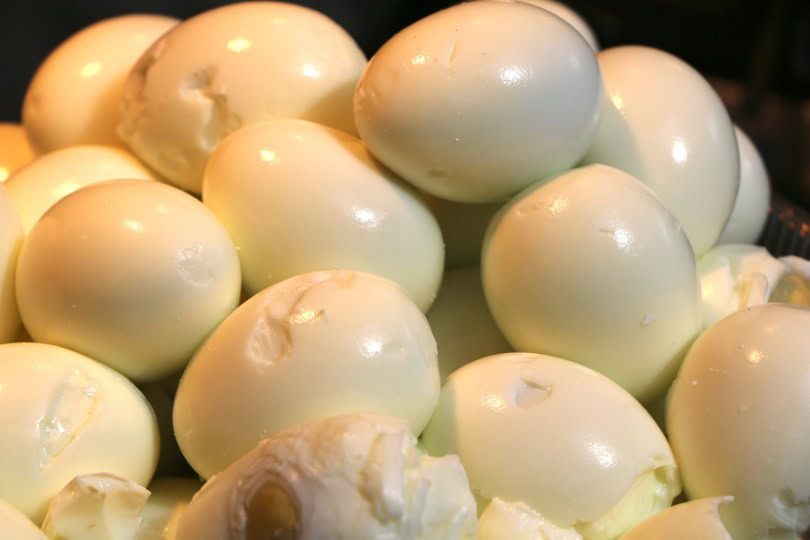
Ingredients:
- 1 egg
- Water
- Place the egg in a small saucepan, and cover with water.
- Bring the water to a boil over medium heat.
- Reduce the heat to low and simmer for 5–7 minutes.
- Remove the egg from the water, and let it cool before serving.
3. Baked Eggs
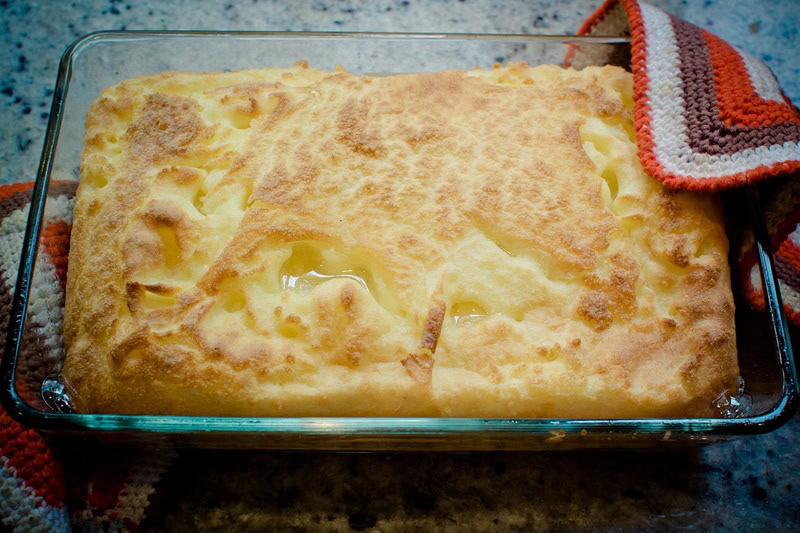
Ingredients:
- 1 egg
- Preheat the oven to 350°F.
- Crack the egg into a small oven-safe dish.
- Bake in the preheated oven for 10–12 minutes or until cooked through.
- Let cool before serving.
Eggs are an excellent source of protein and other nutrients, making them great additions to your cat’s diet. With these recipes, you can whip up something special for your furry friend with ease.

Serving Eggs to Your Cat
Once you’ve cooked the eggs, it’s important to serve them to your cat in a safe and appropriate manner. Here are a few tips:
- Cut the egg into small pieces to make it easier for your cat to eat.
- Serve the egg as a treat or as part of a meal but not as the main course.
- Don’t leave eggs out for too long. If your cat doesn’t eat the egg within 20–30 minutes, remove it to avoid the risk of contamination.
- If your cat has any health issues or dietary restrictions, consult with your veterinarian before adding eggs to their diet.
Eggs can be healthy additions to your cat’s diet if served properly. Always cook the eggs first, don’t add any seasoning or spices, and be mindful of your pet’s overall diet. With a bit of preparation and care, your cat can enjoy the nutritional benefits of eggs as tasty treats or supplements to their regular diet.


Frequently Asked Questions (FAQ)
Why Should I Feed My Cat Eggs?
You may be wondering why you might want to feed your cat eggs. The answer is simple: Eggs are a great source of nutrition and can help keep your cat healthy.
Not only do they provide protein, fatty acids, vitamins, and minerals—all essential nutrients for cats—but they can also help improve digestion, and thanks to the yolk’s lecithin content, they may reduce hairball formation. Plus, they’re tasty treats that cats love!
What Are Some Other Foods I Can Make for My Cat?
If you want to make your cat meals beyond just eggs, there are plenty of other recipes that you can try. For example, you could also mix cooked chicken, a few pieces of broccoli, and an egg for a nutritious meal. If your cat is more of a wet food lover, you can easily make a gravy-like dish by blending eggs with low-sodium chicken broth.
Just make sure to avoid using any spices, oils, dairy, or other ingredients that could make your cat ill.
If you still have questions about how to prepare eggs for your cat, our Vets can help!

Conclusion
Eggs are a fantastic food to include in your cat’s diet. Not only do they provide essential nutrients and help improve digestion, but cats also love their taste!
If you’re ever unsure about what the best foods are for your cat, don’t hesitate to check with your vet. Depending on your pet’s health or existing conditions, you may need to adjust their diet accordingly.
In the meantime, eggs are a great place to start—just make sure they’re either in-shell pasteurized or cooked thoroughly before serving them! If you give them the right recipe and ingredients, your cat will be purring in delight with every meal. Bon appétit!
Featured Image Credit: Vladimir Zhupanenko, Shutterstock
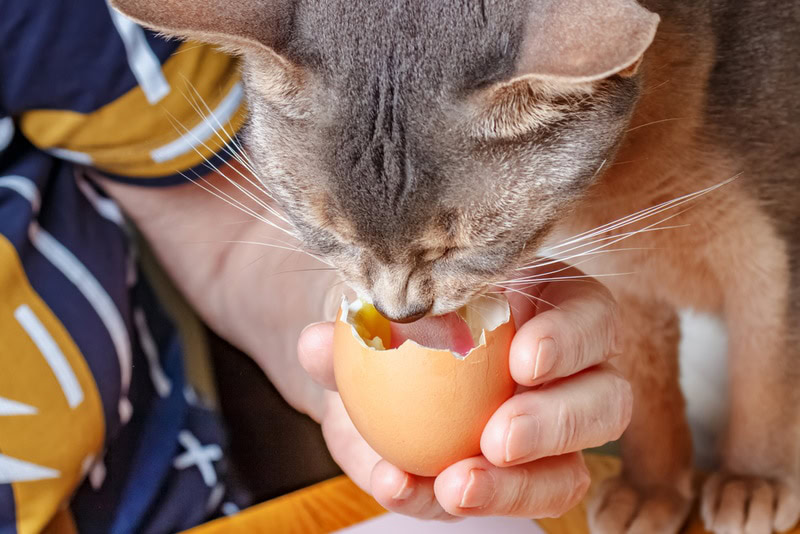






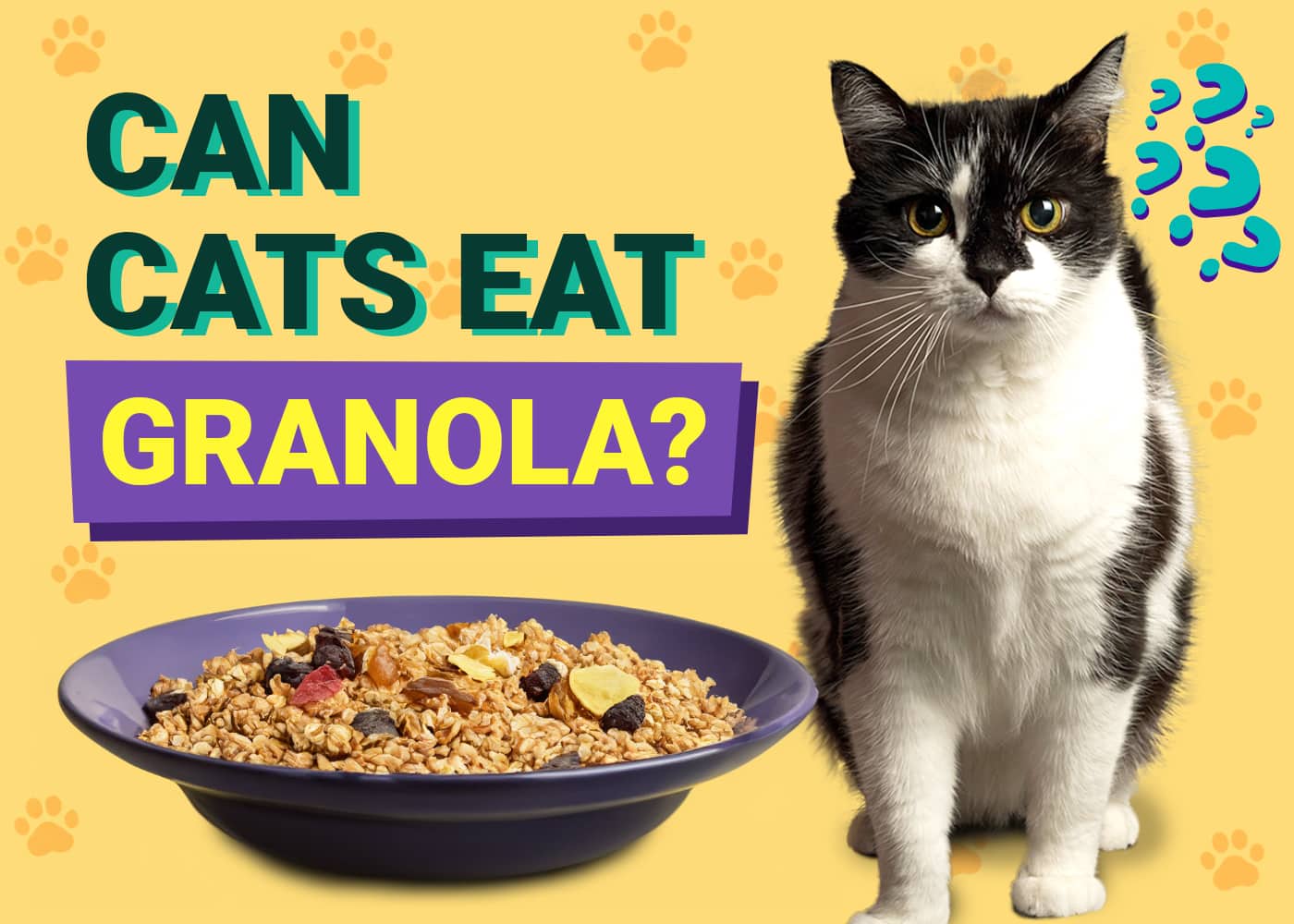
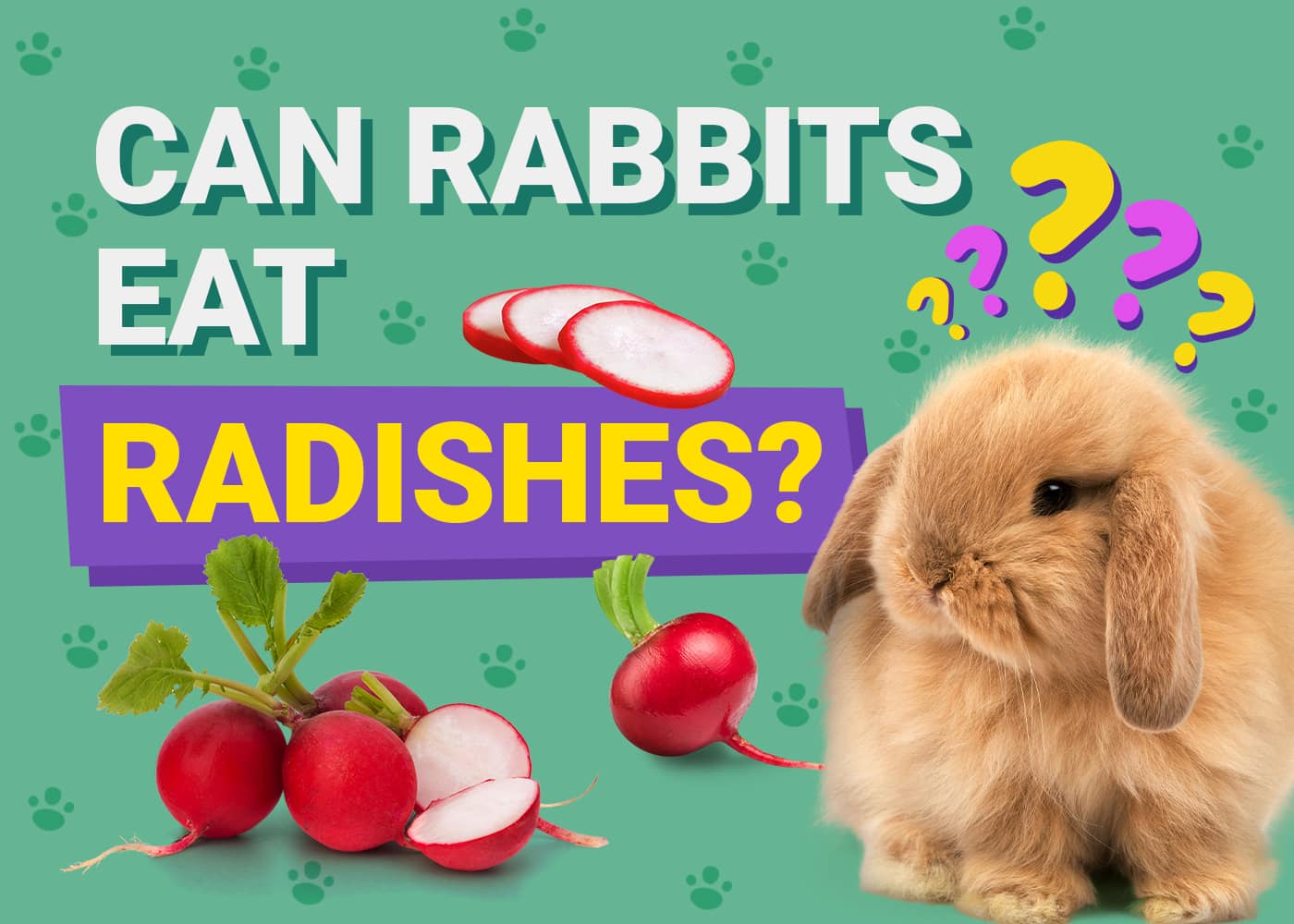
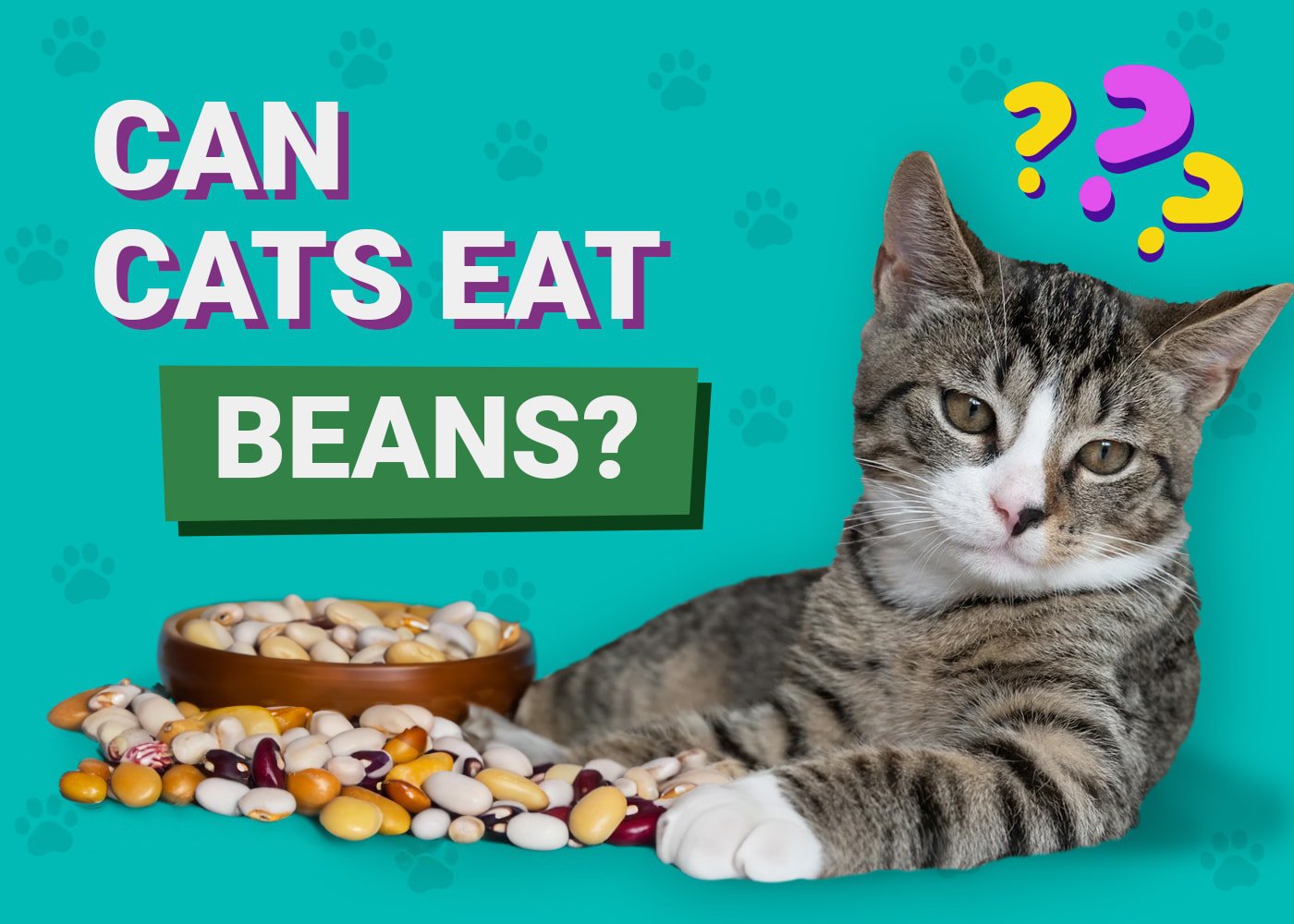



2 Responses
I have an eight month old male domestic sharthair tabby. If he eats kibble too fast after eating his wet food, he has tossed it up immediately. I now usually wait an hour after he eats to put down kibble, and I pull it about an hour before feeding wet food. That seems to alleviate the vomiting.
Dear Paul,
Thank you very much for sharing your story with us. It is great to hear that you were successful in alleviating your cat’s vomiting. Great job on figuring out what to do to help your cat!
We would just like to add, that cats usually do better with several smaller meals a day, rather than few big ones. If your cat would still be experiencing vomiting, one thing that could also help are anti-vomiting cat bowls:
– Does an Anti-Vomiting Cat Bowl Work? Vet Reviewed Facts & FAQ
If you would ever feel the need for some advice, help or consultation, please don’t hesitate to book an appointment with one of our vets at http://www.PangoVet.com.